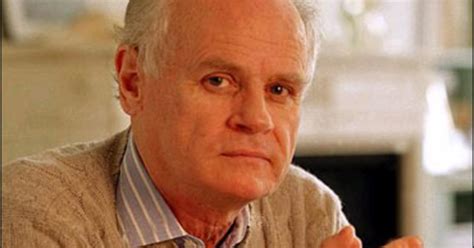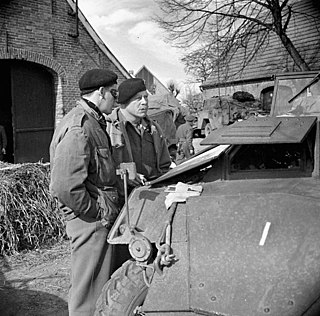A Quote by James Hansen
The most difficult task, phase-out over the next 20-25 years of coal use that does not capture CO?, is Herculean, yet feasible when compared with the efforts that went into World War II. The stakes, for all life on the planet, surpass those of any previous crisis. The greatest danger is continued ignorance and denial, which could make tragic consequences unavoidable.
Quote Topics
Related Quotes
I think the place maybe to watch with the greatest worry right at the moment, and to try to help the most, may be those parts of Africa around Somalia that are enduring a climate-caused and really record-breaking drought. It may be the greatest humanitarian crisis since the end of World War II. And of course, where humanitarian crises happen, so do political instability. This is the world that we're building and building fast. And it's the world that people are trying somehow to slow down. Trying very hard to bring down this fossil fuel machine before it does any more damage.
It's important to remember that World War II was experienced very much as a continuity in that sense. Most of World War II in most of Europe wasn't a war; it was an occupation. The war was at the beginning and the end, except in Germany and the Soviet Union, and even there really only at the end. So the rest of time it's an occupation, which in some ways was experienced as an extension of the interwar period. World War II was simply an extreme form, in a whole new key, of the disruption of normal life that began in 1914.
If the World War [I] demonstrated anything it was that government ownership is fraught with the gravest dangers and usually leads to disaster. Take Britain. The two problems which have caused the greatest trouble since the war ended have been transportation and coal. The government seized both industries when the war broke out. It got them into such a hopeless mess that it does not know how to turn [In] coal; the government now realizes, it took hold of the tail of a wild animal and is afraid to let go.
We are very confident that the data is showing that carbon capture and sequestration is technologically feasible and it's available. It has been successfully demonstrated and there are full-scale both conventional and unconventional coal projects with CCS that are moving forward. So there is no question that there's continued investment in this technology.
The economy in the next 20 to 25 years is going to change more than they did in the last 20, 25 years. And that's because exponential trends are affecting a bigger and bigger share of the economy. So we have some huge disruptions in store, and I can't predict exactly what the innovations are going to be. If I did, I would have already invented them. But I think they'll be comparable to the innovations we saw in the past 20, 25 years if not greater.
Our answer is the world's hope; it is to rely on youth. The cruelties and the obstacles of this swiftly changing planet will not yield to obsolete dogmas and outworn slogans. It cannot be moved by those who cling to a present which is already dying, who prefer the illusion of security to the excitement and danger which comes with even the most peaceful progress. This world demands the qualities of youth: not a time of life but a state of mind, a temper of the will, a quality of imagination, a predominance of courage over timidity, of the appetite for adventure over the life of ease...
Potential does not always ensure success. The greatest players have not always been the most endowed. In athletics, we often hear the phrase, "He has the will to win". I think this is wrong. We can have the greatest will to do well. But unless we have prepared, it is of little use. Really, it should be the "will to prepare". Those who succeed have this will, whether it be in athletics, whether it be in school, whether it be in their chosen vocation, whether it be on a mission, or in almost any other phase of their life.
We have to recognize that the reason that the global order that we've enjoyed and almost take for granted over the last several years exists is that after World War II, the United States and its allies tried to build an antidote to what they had seen between World War I and World War II. There, they'd seen protectionism, beggar-thy-neighbor trading policies, so they said, we'll build an open international economy. And they did that.





































